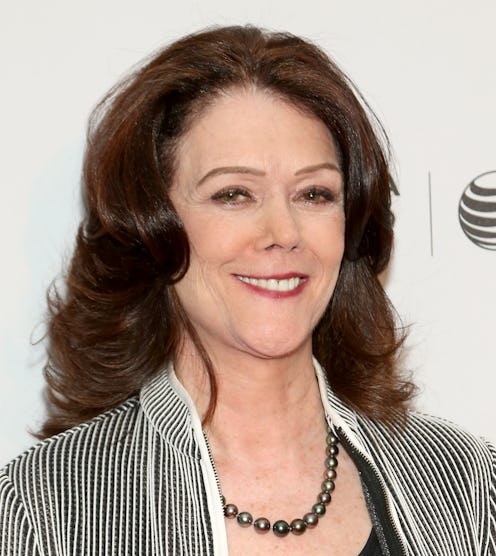News
Steven Avery's Lawyer Is Speaking Out
In addition to tweeting her perspective on the case against Making A Murderer's Steven Avery, his lawyer Kathleen Zellner has spoken to an online TV host about why she decided to represent Avery, why think she thinks he's innocent, and her belief that Theresa Halbach's real killer is still out there. Zellner hasn't given many interviews, but a few long-form answers to her thoughts on the matter came out on an episode of Crime Time, a show on court dramas and criminal justice from the web-based independent media channel TheLip.tv.
The big-shot wrongful conviction lawyer took Avery's case in January, and since then has been speculating about contaminated and planted evidence through her Twitter account. Host of the web series Allison Hope Weiner says she had dinner in Chicago with Zellner, who then agreed to answer a few specific questions about Avery.
According to Weiner's account, the case to free not only Avery, but his nephew Brendan Dassey, should be cut-and-dried once Zellner's legal team finishes their assessment. Zellner told Weiner that she's positive Avery and Dassey will be freed and that the real killer will be exposed in the process.
Weiner said Zellner said she believed the two were framed, and that it's fairly obvious who did it — although she didn't reveal who.
Weiner also recorded Zellner answering a few questions after their dinner. Zellner told the host that the biggest reason she took the case was the evidence she believed to have been planted (a defense Avery's jury did not buy, and the sheriff's department denies), but she also thought there was discrimination against Avery and his family. Another key factor, she claims, was the civil rights case he had filed against the Manitowoc County Sheriff's Department for their role in his prior incarceration for the rape he did not commit.
I think that the Avery family was discriminated against just because they were viewed, particularly Steven, as being dispensable. Certainly, the whole case revolves around the fact that he brought a civil rights case, and I think that's one of the most important developments in all of these wrongful conviction cases is bringing civil rights cases. And so when I saw that there was a concerted effort to stop him from bringing that case showing the police misconduct, that really piqued my interest in it.
Zellner explained that civil rights trials allow for a closer examination of the evidence and can be cited around the country as precedent in future wrongful conviction cases. She said most criminal trials last about a week with just a "very superficial examination" of the evidence. In comparison, in a civil rights trial, she said the jury becomes very familiar with the evidence allegedly "used to frame someone" and then looks at it on a constitutional level.
My goal, in my career, is to affect change through this case law across the country that will prevent these constitutional abuses. And, I've found that jurors are amazingly responsive to these issues. So once they understand the criminal case, and they've gone with the evidence, then they understand why it's important that these rights are preserved, due process isn't abused, that the wrong people aren't convicted.
During their dinner, Weiner said that Zellner insisted she would not have taken the case unless she truly believed Avery was innocent. One of Zellner's first cases was representing a serial killer who was innocent of the crime he was being accused of — but who had committed many other murders. She ultimately got him to confess, but vowed never to represent a guilty person again. She explained why she thinks he's innocent:
It's the evidence. In having had a number of these cases, it has the signature of a wrongful conviction case. They only focused on him. They did not look at a lot of other suspects, certainly some very key people they should've been looking at. There was very poor investigation done of the victim's background, who she was involved with, the circumstances of her life.
Also important was Avery himself — but the evidence, she claims, was the most important thing:
When I met him, I realized in the time that I've spent with him, I've probably spent now 15 or 20 hours, I just absolutely don't believe that he committed this murder. I don't believe he's capable of committing a murder. But that's not the key thing. The key thing was the evidence itself. The evidence is just flawed.
Zellner has continued to tweet in recent days about going to get more samples from Avery for further testing of said evidence.
